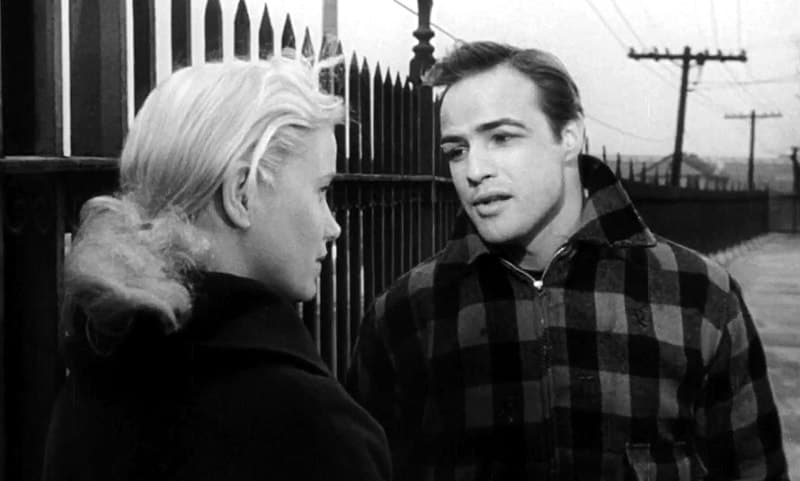On the Waterfront, Waiting for Hochul
The fate of the Waterfront Commission will test whether the rule of law, or corruption, prevails at New York’s Harbor.

The fate of the Waterfront Commission — inspired by the Sun’s Pulitzer-prize reporting about crime on the docks — will test whether the rule of law, or corruption, prevails at New York’s Harbor. New Jersey wants to torpedo the commission, which it co-founded with New York in 1953. A former commissioner, Ronald Goldstock, says that’s a mistake because the harbor is “the last bastion of organized crime control of an industry.”
On March 28, New Jersey will step away, saying its state police will patrol the docks. Garden State lawmakers on Wednesday told the commission, which isn’t cooperating, that its “petulant attitude will not be tolerated.” The longshoremen’s union and the New York Shipping Association have “Trenton lawmakers in their pocket,” the Daily News writes. The New York Post says closing the commission will “hand the ports over to the mob.”
The Supreme Court denied the commission’s suit against the Garden State scheme in November. That’s a lead pipe cinch, in our view, since it would be akin to New Jersey suing itself. Governor Hochul sent a limp letter of protest to Governor Murphy and is, a spokeswoman says, “evaluating our options.” Yet “New York has a real dog in the fight,” Mr. Goldstock tells the Sun, calling New Jersey’s move “unconstitutional.”
The Garden State’s move would set a poor precedent for other compacts like the Port Authority of New York and New Jersey, Mr. Goldstock says. It would also boost the longshoremen’s union, which Waterfront commission director Walter Arsenault says denies jobs to “well-deserving residents of the Port’s surrounding communities” even as jobs go to “those who are connected to union leadership or organized crime figures.”
The commission’s creation grew from Malcolm Johnson’s 1948 series of 24 investigative dispatches in which the Sun chronicled widespread waterfront wrongdoing. Johnson reported how “an underworld syndicate” controlled “organized crime throughout the country,” including New York Harbor, “where violence and racketeering flourish.” The skulduggery on the docks was laid at the feet of the powerful longshoremen’s union.
Johnson spoke with the union president, “red-faced Joe Ryan,” who “drummed on his shining glass-topped desk and said that there just wasn’t any organized crime on the New York waterfront.” Asked if “racketeers” ran a “loading racket” on the docks, Ryan “smiled patiently,” noting “every district attorney for years back has investigated the loading racket — I mean, the so-called loading racket — and has not found anything.”
The Sun’s reports featured photographs — in effect mug shots — of union officials like Mickey Bowers, who ruled over the piers where trans-Atlantic ocean liners docked, and John “Cockeye” Dunn, boss of the docks below West 14th Street. As it happened, while the Sun’s series was being published, Dunn was at Sing Sing prison awaiting execution for the murder of a less than cooperative “hiring boss” on Pier 51.
Johnson went on to receive the Pulitzer for local reporting. The commission, tasked with uprooting the widespread criminality, began its work shortly afterward. “We are determined that racketeers, criminals and hoodlums be driven from the docks,” Governor Dewey announced at the agency’s debut, “together with the evil practices they spawned and on which they thrived.” Contrast Dewey’s boldness with Ms. Hochul’s inaction thus far.
The anti-crime campaign inspired Elia Kazan’s 1954 film “On the Waterfront,” featuring Marlon Brando as longshoreman Terry Malloy, a pawn of underworld dock bosses, and Eva Marie Saint as his love interest. In the film the tormented Malloy redeems himself by testifying to the commission. That was, incidentally, an homage to Kazan’s own earlier testimony before the House Un-American Activities Committee.
For a time, the commission succeeded, stopping the worst examples of corruption, even if it never completely eliminated criminality, like theft of cargo, on the docks. Yet as shipping technology changed, the old waterfront became quieter, and corruption crept back in, including organized crime. By 2009 New York’s inspector general found that “instead of ridding the waterfront of corruption, this agency itself was corrupt.”
A shakeup ensued, and now the Justice Department just praised the commission for helping convict a “captain in the Gambino organized crime family” on racketeering charges. New Jersey’s plan to let police patrol the docks harks back to the days when Ryan’s union ran amok. Maybe Governor Hochul should read the Sun’s original series, in which Ryan is quoted as uttering the immortal words: “We got a Police Department, haven’t we?”

